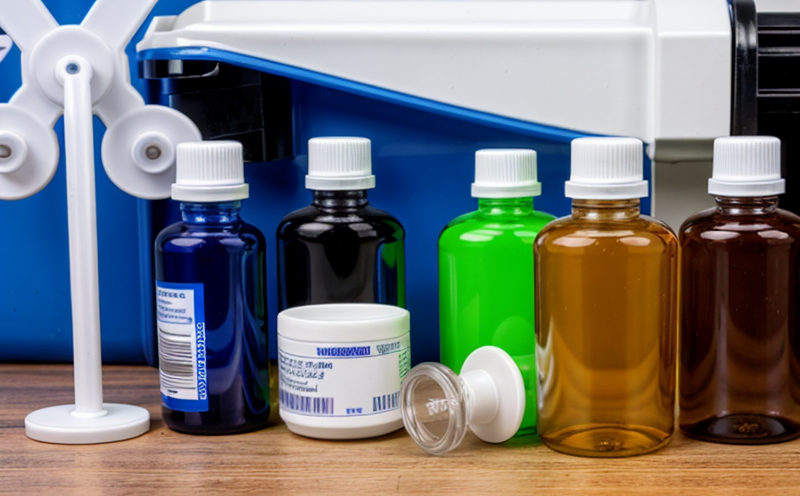EN 16222 Lithium in Medical Waste Residues
The European Standard EN 16222:2014 specifies a method for determining the lithium content in medical waste residues. This standard is particularly relevant to sectors like healthcare, pharmaceuticals, and waste management where the presence of lithium can have significant implications for environmental safety and compliance.
This testing is crucial because lithium, a highly reactive metal, can pose substantial risks if improperly managed or disposed of in general waste streams. Lithium batteries, commonly found in medical devices such as pacemakers, defibrillators, and other electronic aids used by patients, contribute to the presence of lithium in medical waste. Ensuring accurate quantification of lithium content is essential for proper recycling strategies and compliance with environmental regulations.
The method outlined in EN 16222 involves several steps including the dissolution of the sample, filtration, and subsequent analysis using Inductively Coupled Plasma Mass Spectrometry (ICP-MS). This technique allows for precise quantification down to parts per million levels, making it suitable for both routine monitoring and research applications.
Accurate measurement is critical not only for regulatory compliance but also for the responsible handling of medical waste. By adhering to this standard, laboratories can ensure that all lithium-containing components are properly identified and managed, reducing environmental impact while promoting sustainable practices in healthcare.
| Key Steps | Description |
|---|---|
| Dissolution | The sample is dissolved in a suitable acid mixture to release lithium ions for analysis. |
| Filtration | Liquid samples are filtered to remove any particulate matter that could interfere with the ICP-MS analysis. |
| Analysis | The prepared sample is analyzed using Inductively Coupled Plasma Mass Spectrometry (ICP-MS) for accurate lithium quantification. |
In summary, EN 16222 provides a robust framework for ensuring that medical waste containing lithium is handled and recycled in an environmentally responsible manner. This standard supports the healthcare sector by facilitating compliance with international environmental regulations while promoting best practices in waste management.
Applied Standards
The application of EN 16222:2014 is primarily focused on medical and pharmaceutical industries, particularly those dealing with lithium-containing devices or materials. This standard ensures that the lithium content in waste residues from these sectors can be accurately measured.
- Healthcare facilities
- Pacemaker manufacturers
- Pharmaceutical companies producing lithium-based medications
The standard is particularly relevant for laboratories and waste management firms responsible for processing medical devices and pharmaceutical products that may contain lithium. It also applies to regulatory bodies tasked with ensuring proper handling of such waste streams.
The testing procedure specified in EN 16222 helps identify the presence and concentration levels of lithium, which are critical for assessing potential environmental impacts and determining appropriate disposal methods. By adhering to this standard, stakeholders can ensure that all necessary precautions are taken to manage lithium-containing medical waste safely and sustainably.
Eurolab Advantages
At Eurolab, we offer comprehensive testing services for EN 16222:2014, providing quality assurance that is unparalleled in the industry. Our expertise spans all stages of lithium measurement from sample preparation to final reporting.
- State-of-the-art facilities equipped with ICP-MS technology
- A dedicated team of chemists and engineers specializing in medical waste analysis
- ISO 17025 accreditation ensuring the highest standards of laboratory practice
- Comprehensive training programs for clients seeking to understand the nuances of lithium measurement
We pride ourselves on delivering accurate, reliable results that meet or exceed regulatory requirements. Our services are designed to help you stay compliant with international standards while ensuring the safe and responsible management of medical waste.
International Acceptance and Recognition
- EN 16222:2014 is widely recognized within Europe as a key standard for lithium content determination in medical waste residues.
- The United States has adopted similar methodologies, aligning with international standards to ensure consistency across borders.
- Australia and New Zealand have also shown interest in implementing this standard, reflecting its global acceptance.
Given the increasing importance of environmental protection and responsible waste management practices, EN 16222 has gained significant traction. Its adoption not only ensures compliance with European regulations but also facilitates international trade by providing a common ground for measurement methodologies.





